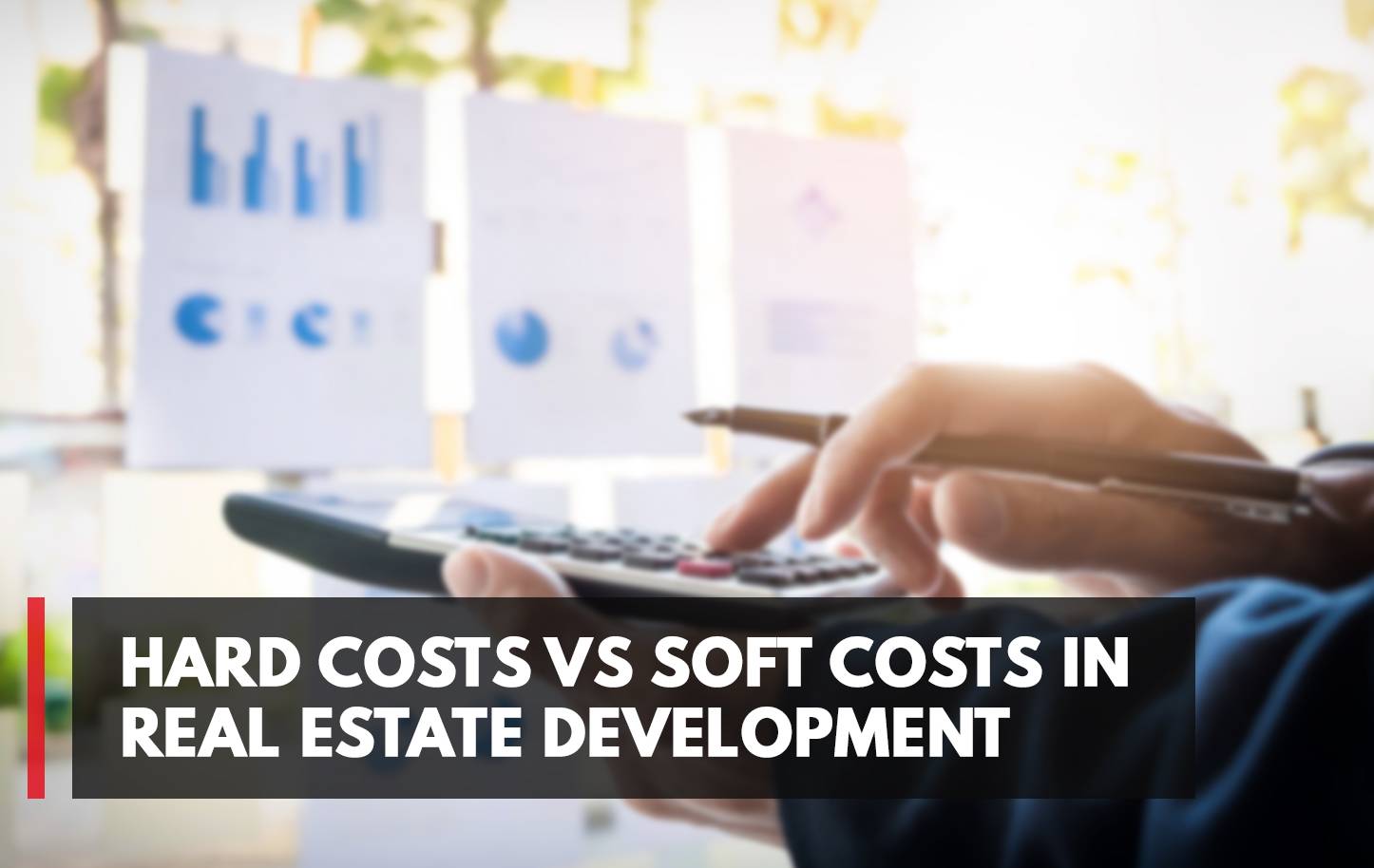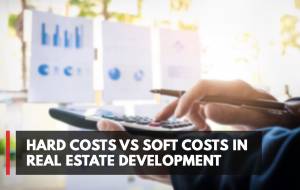
Hard Costs VS Soft Costs In Real Estate Development
Published At: Thu, 01/13/2022 - 10:45
Commercial real estate is a confusing topic that may be difficult to understand. Most people think that the cost of developing commercial property is just about the price you pay for building a property. In reality, there are two types of costs associated with commercial real estate development; hard costs and soft costs.
This article aims to explain the difference between the two types of costs that are commonly acquired when developing commercial real estate. By understanding them, you can make smarter decisions when it comes to your business.
Hard Costs
Hard costs, also known as brick and mortar costs, are the expenses that go directly to the development of the physical property.
This involves the construction costs of a building or other structures, including materials like drywall and lumber, site excavation, landscaping, parking, etc. You can’t avoid hard costs.
Commercial real estate brokers will typically focus on hard costs during negotiations because they can control them. For example, they know the costs for every square foot in the building to negotiate with future tenants.
Soft Costs
Soft costs refer to any additional associated fees outside hard costs such as legal fees, administrative expenses, permits, etc.
In commercial real estate, soft costs are inevitable as they can't be avoided entirely, even with the most efficient management team and contractor. In a way, you have no choice but to deal with these extra expenses because these come up at different stages of development and or construction.
Soft costs are considered intangible yet critical to the project, and they account for 15% to 30% of the budget.
Here are some examples of soft costs:
- Architectural and design fees
- Advertising
- Inspections
- Project management
- City planning fees
Hard vs. Soft Costs - Differences in Real Estate
- Hard costs will go directly to the construction of structures and are also an unavoidable expense. Soft costs come up at different stages during development, and they are mostly considered intangible yet critical expenses in a project.
- Hard costs represent 70% to 85% of the total costs of a project, while soft costs typically represent 15% to 30%.
- Soft costs can continue after a project ends, while hard costs are usually contingent to construction.
- The main focus of a business during development is usually directed towards reducing hard costs, while soft costs generally need control and management throughout the process for better results without sacrificing quality or deadlines.
Understanding These Costs Can Help you
Knowing the difference between hard and soft costs is very important because it will help you understand what to expect from your commercial real estate development.
If a broker or developer tries to focus on just one of these expenses during negotiations, chances are they have a plan to omit one or the other in conversations, so be careful.
In general, developers tend to try and cut corners about soft costs as much as possible while increasing hard costs to make more money off of their properties. If this happens, then you should reconsider immediately.
Your time may end up put to waste if your money does not go towards making better profits. So when signing contracts with any third-party company, such as brokers or developers, you need to know what they are all about so that you can have a better idea of where your money is going.
How Can You Lower Hard Costs?
Planning is an essential aspect of lowering construction costs. You should always have a plan that will tell you how much money you need and where it is going so that there are no hidden costs once the construction starts.
When negotiating with brokers or developers about hard costs, don't let them concentrate on this aspect only. You should also focus on lowering material and labor costs to help decrease your hard costs.
Focusing on hard costs is one strategy for earning more profits from properties without putting too much effort into making good deals for potential tenants/buyers.
Only hire contractors that will give you discounts or rates during negotiations so that your expenses won't skyrocket. You don't necessarily need premium services for every stage of development if they aren't necessary.
How Can You Lower Soft Costs?
Soft costs refer primarily to the administrative and legal expenses that come up during a project. Therefore, it is ideal for reducing them as much as possible by negotiating better rates for every service they offer you, including insurance companies, lawyers, architects, etc.
Doing this at each stage from the design phase until completion will help you save hundreds if not thousands of dollars without sacrificing quality or deadlines.
When hiring third-party contractors such as brokers and developers, make sure they have previous experience working on similar projects because there is no point in going into business with someone who has no idea what they are doing. This will surely cause delays and additional costs.
Before You Go
Both hard and soft costs play a significant role in commercial real estate. If you don't know how they work and their main differences, chances are your project will cost you more money in the long run.
If you get familiarized with them before investing in properties, then there won't be much hassle later on down the road.


